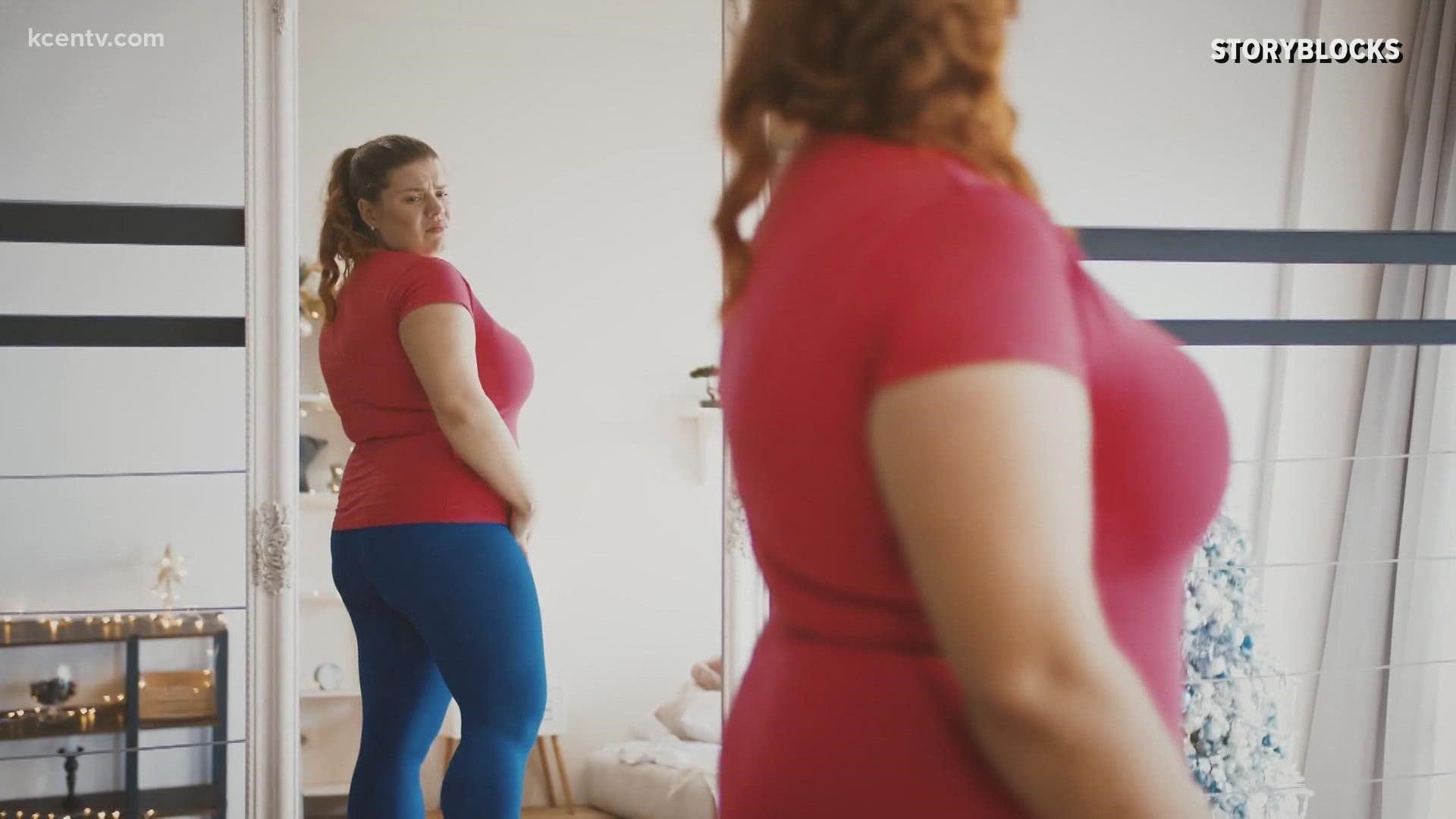TEMPLE, Texas — Body image is the way we think about, feel and act toward our body. And often, it's influenced by outside sources, especially social media.
Alissa Rumsey is a registered dietitian nutritionist and certified intuitive eating counselor. She says, "our body image is shaped not just by what we think of our bodies and how we view our bodies, but how others view and treat our bodies."
Rumsey helps her clients work on boosting body image, especially after stepping away from diet culture. According to Rumsey, "we are swimming in this culture that tells us that we have to look a certain way in order to be accepted and valued and loved and healthy."
The statistics on body image are scary, she said. A 1997 Psychology Today survey found 56% of women were dissatisfied with their bodies. In 2011, a survey by Glamour magazine put that number at 97%. The University of Washington reports at age 13, 53% of American girls are "unhappy with their bodies." This grows to 78% by the time girls reach 17. And researchers at Illinois State University found poor body image can lead to unhealthy eating behaviors and disordered eating.
While social media has been linked to poor body image, there are plenty of accounts out there helping people find support and community, like The Unplug Collective. College students Amanda Taylor and Zara Harding are the CEO and COO.
"People are really suffering,” Harding said. "And a lot of it goes unnoticed because so much of the language and the ideology is extremely normalized. It's everywhere. It's constant. And it's basically inescapable. But you don't even realize it because in the head, it's just, you know, normal thing.”
The digital company is a place where Black women and gender-expansive people work to heal their relationships with their bodies. With more than 56,000 followers, their Instagram page tackles things like anti-body discrimination, mental health and body image.
Their advice for healing body image?
"I think surrounding yourself with people who are aware of this work and who know what not to say more importantly than what to say and people who really do make you feel loved beyond your appearance," Taylor said.
Harding’s advice? "Cleaning up your feed, um, like really pay attention to the people that you follow. On social media and how they make you feel."
"I've had so many clients tell me that the thing that made the biggest impact the quickest on their body image was changing who they followed on social media," Rumsey agreed.
She also suggests practicing mindfulness and meditation, so you can create a pause between thoughts and negative feelings.
“What tends to happen is we have a thought, or even experience with a pair of pants too tight, and then we immediately react and we start to spiral into this like shame spiral," she said. "When we use mindfulness, we create some space between that experience, like pants being tight and our reaction to it. And instead of just having that automatic reaction and starting to spiral downwards, we're able to sort of observe what's happening and get curious a bit and then respond rather than react. So it doesn't mean that you might not still feel bad, you totally are probably still going to feel bad in that moment. But it allows you to sit with those feelings, rather than just like keep shaming yourself and blaming yourself for having those feelings.”
Rumsey is quick to point out that those practices - of sitting with those negative feelings - can be difficult and she suggests finding a body-inclusive therapist if you're experiencing anything like this. Here’s an excellent database of therapists who practice the Health at Every Size framework.
Next week, in our final piece of this series, we take a look at intuitive eating, an anti-diet that aims to help you reconnect with your body's natural messages.

